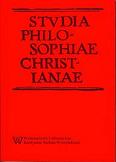An attempt at the categorization of the limits of science
An attempt at the categorization of the limits of science
Author(s): Janina BuczkowskaSubject(s): Philosophy
Published by: Wydawnictwo Naukowe Uniwersytetu Kardynała Stefana Wyszyńskiego w Warszawie
Keywords: philosophy of science; methodology; science; limits of science; empirical knowledge
Summary/Abstract: The paper makes a (non-exhaustive) attempt to indicate various categories of limits faced by science. It is also demonstrated that investigation of the limits may be an additional source of knowledge about the essence of science. The general question about “the limits of science” is ambiguous and we need to detail which limits are concerned. Science encounters several limits. Some mark the boundaries of its capabilities, while others determine its character. One may ask, what is the limit of current science, or ask whether there is a domain of phenomena, which, by its own internal rule, science will never be able to investigate. Yet another question is how far we can change present research methods to still be able to define the results attained through them as scientific? These are the questions about the limits of science as a whole. Philosophy has frequently attempted to identify and sometimes demarcate those science limits. The question of limits of a specific theory has a different reference. It concerns the issue of how adequate the laws of a particular scientific theory are, e.g. the classic theory of gravity, the biological brain's neuronal theory etc. Those limits are not placed on science by philosophy or culture, but are defined by science itself. In this paper these kinds of limits are just shortly mentioned. In the paper the author concentrates on this type of scientific limits, which characterizes science as a whole. The limits of science taken as a whole follow from the types of postulates set for the ideal of science. Each specified kind of limit is related to some philosophical dispute, which indicates that science transcends those limits and a model of science, which does not account for this and imposes strict limitations, is inadequate. The main subject of this paper is to show that philosophy tries to discover the nature of science by defining the limitations for scientific knowledge. Confrontation of these philosophical expectations with real science leads to a development of our knowledge about science as such. The image of science revealed through this analysis demonstrates that it is a certain dynamic entirety of theories and methods, constantly evolving and developing in accordance with its internal laws. It is not completely homogenous in terms of methodology or scope. It has some kind of hierarchical structure, but there is a certain kind of internal non-contradiction between theories of various levels. Various areas of knowledge in the scope of the entirety of science interact and inspire each other. As is demonstrated, getting to know the limits of science is a way to better understanding its nature.
Journal: Studia Philosophiae Christianae
- Issue Year: 47/2011
- Issue No: 3
- Page Range: 19-36
- Page Count: 18
- Language: English

